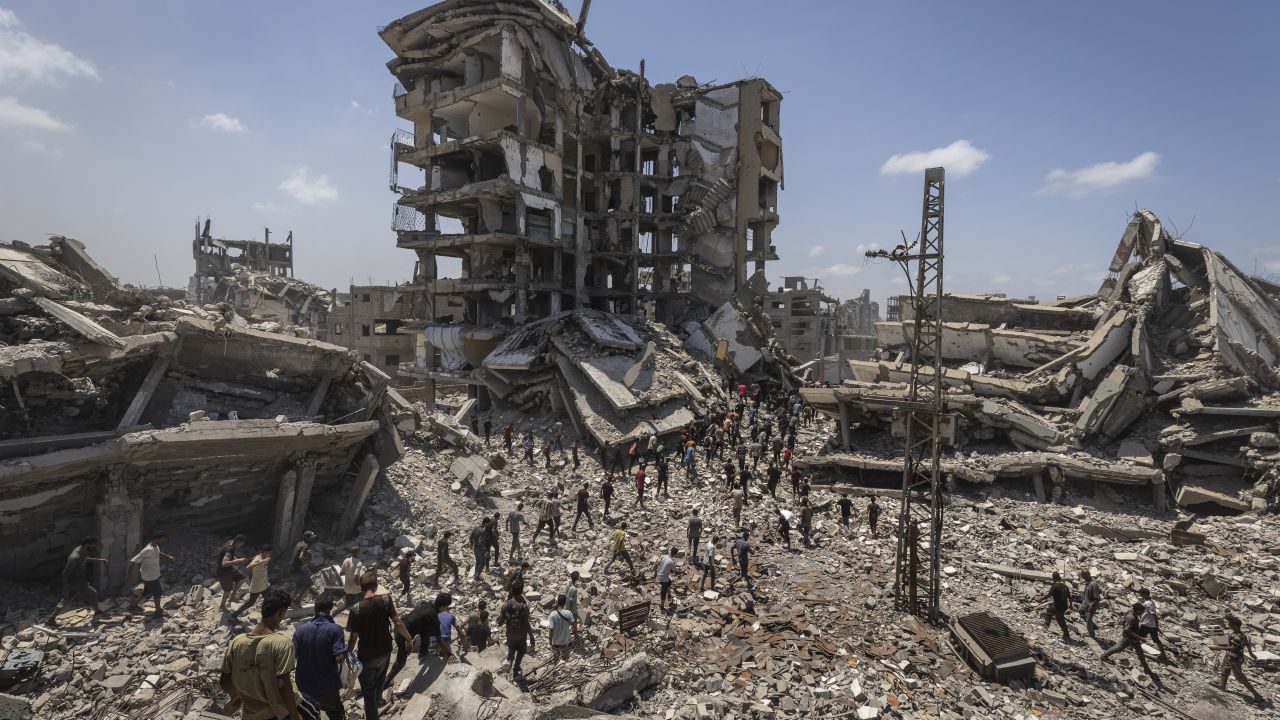Science
Ex-U.S. Negotiator Highlights Challenges of Occupying Gaza City

Former U.S. State Department Middle East negotiator Aaron David Miller has expressed significant concerns about Israeli Prime Minister Benjamin Netanyahu‘s proposed plan to occupy Gaza City. In his analysis, Miller highlights the numerous complications that such an initiative would present for Israel, particularly given the complex political and military landscape.
The prospect of an occupation raises questions about its feasibility and potential consequences. Miller emphasizes that the challenges associated with occupying Gaza City are multifaceted. The region is densely populated, which complicates military operations and increases the risk of civilian casualties. This could lead to further international condemnation, undermining Israel’s standing on the global stage.
Military and Political Ramifications
Miller notes that the Israel Defense Forces (IDF) would face immediate operational difficulties. The urban environment of Gaza City, characterized by narrow streets and high-rise buildings, poses a significant tactical challenge. Any military action would require careful planning to minimize harm to civilians, a consideration that could limit Israel’s strategic options.
Additionally, the political ramifications of an occupation could be dire. The presence of Israeli forces in Gaza City could be interpreted as an act of aggression, potentially escalating tensions with Hamas and other militant groups. Miller warns that such a move could provoke retaliatory attacks, leading to a cycle of violence that would be difficult to control.
Miller also points out that the situation in Gaza is not simply military; it is deeply intertwined with humanitarian concerns. The region has long faced economic hardship and a lack of basic services, exacerbated by the ongoing conflict. An occupation could further deteriorate the living conditions for Palestinians, fueling resentment and resistance against Israeli forces.
International Implications and Historical Context
The international community is likely to scrutinize Israel’s actions closely. Historical precedents suggest that occupations often lead to prolonged conflicts, with both immediate and long-term consequences. The situation in Gaza is already complicated by a history of violence and distrust between Israelis and Palestinians, making any attempt at occupation particularly sensitive.
Miller’s insights reflect a broader skepticism about the viability of Netanyahu’s plan. He urges caution, advising that Israel must carefully weigh the potential repercussions of such military actions. The balance between military objectives and the need for diplomatic solutions is delicate, and the stakes are high for all parties involved.
As discussions around this controversial plan continue, the focus remains on the potential human cost and the implications for peace in the region. The future of Gaza City hangs in the balance as leaders navigate these complex dynamics.
-

 Lifestyle5 months ago
Lifestyle5 months agoLibraries Challenge Rising E-Book Costs Amid Growing Demand
-

 Sports4 months ago
Sports4 months agoTyreek Hill Responds to Tua Tagovailoa’s Comments on Team Dynamics
-

 Sports4 months ago
Sports4 months agoLiverpool Secures Agreement to Sign Young Striker Will Wright
-

 Lifestyle4 months ago
Lifestyle4 months agoSave Your Split Tomatoes: Expert Tips for Gardeners
-

 Lifestyle4 months ago
Lifestyle4 months agoPrincess Beatrice’s Daughter Athena Joins Siblings at London Parade
-

 Science4 months ago
Science4 months agoSan Francisco Hosts Unique Contest to Identify “Performative Males”
-

 World4 months ago
World4 months agoWinter Storms Lash New South Wales with Snow, Flood Risks
-

 Science5 months ago
Science5 months agoTrump Administration Moves to Repeal Key Climate Regulation
-

 Business5 months ago
Business5 months agoSoFi Technologies Shares Slip 2% Following Insider Stock Sale
-

 Science5 months ago
Science5 months agoNew Tool Reveals Link Between Horse Coat Condition and Parasites
-

 Sports5 months ago
Sports5 months agoElon Musk Sculpture Travels From Utah to Yosemite National Park
-

 Science5 months ago
Science5 months agoNew Study Confirms Humans Transported Stonehenge Bluestones









